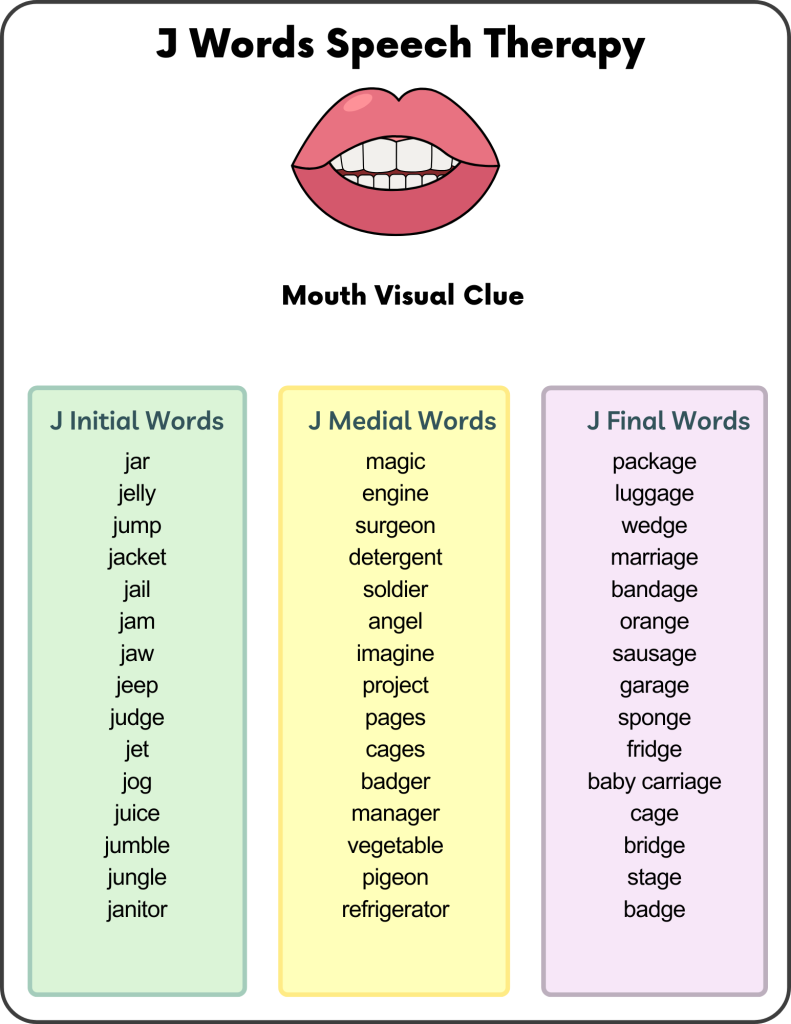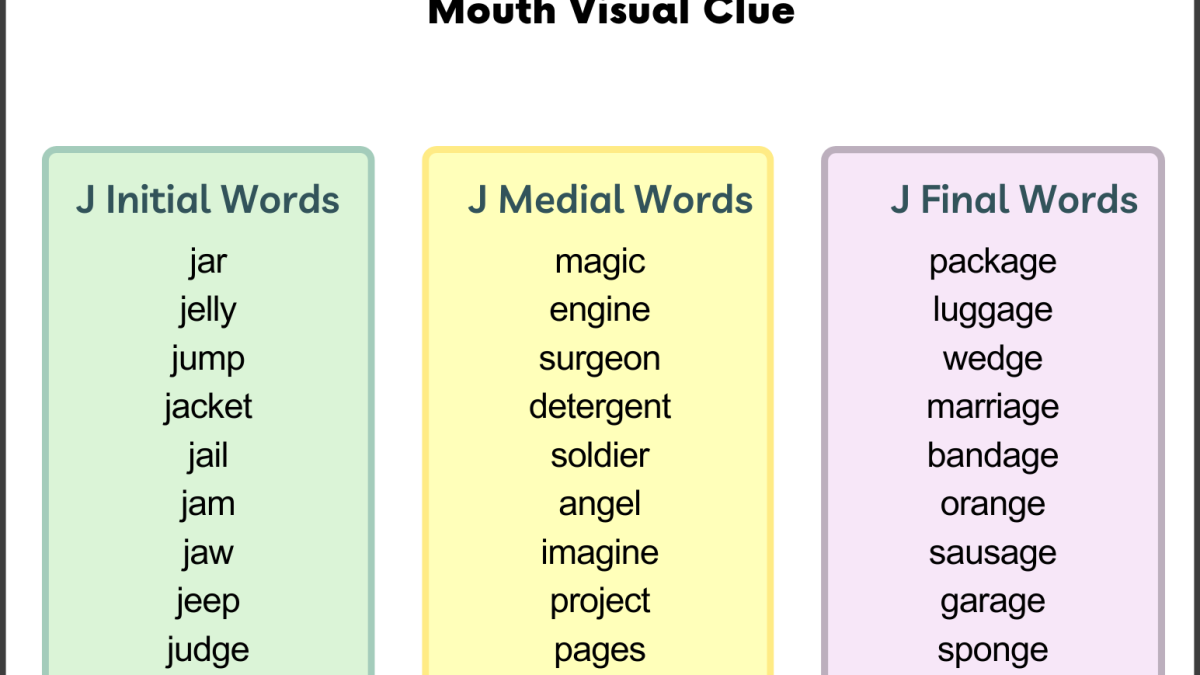Free Final Th Sound Articulation Flashcards Worksheet PDF
November 12, 2025
L Words in Speech Therapy
November 18, 2025Introduction to J Words in Speech Therapy
Welcome, parents! If your child is struggling to pronounce J words, this guide is here to help. The J sound, a voiced affricate, is typically mastered by age 5. Some children may substitute it with other sounds like “sh” or “ch,” so practicing it in different word positions is crucial. This article provides lists of J initial, medial, and final words and tips to make practice engaging and effective at home.

J Words Speech Therapy Printable PDF Worksheet
Understanding J Word Positions
- Initial J Words: These begin with J, like “jam” or “jelly,” where the sound starts with a strong, voiced pop.
- Medial J Words: These have J in the middle, such as “magic” or “engine,” blending J with surrounding sounds.
- Final J Words: These end with J, like “package” or “luggage,” requiring a clear, voiced finish.
D’s voiced nature (vocal cords vibrate) sets it apart from its voiceless twin, T, and practicing it in all positions builds consistency.
Lists of J Words for Practice
Below are curated lists of J words for each position, suitable for home use and integrated into daily activities.
J Initial Words
- jar
- jelly
- jump
- jacket
- jail
- jam
- jaw
- job
- juggler
- judge
- jet
- jog
- juice
- jumble
- jungle
- janitor
- jay
- jeep
- jewel
- jigsaw
- jingle
- jockey
- jogger
- john
- joint
- joke
- jolly
- jot
J Medial Words
- magic
- engine
- surgeon
- detergent
- soldier
- angel
- imagine
- project
- pages
- cages
- badger
- manager
- vegetable
- pigeon
- refrigerator
- changing
- dangerous
- magician
J Final Words
- package
- luggage
- wedge
- marriage
- bandage
- orange
- sausage
- garage
- sponge
- fridge
- baby carriage
- cage
- bridge
- stage
- badge
- cabbage
Tips for Parents to Support Practice
Here’s how to help your child with J words at home:
- Make it Fun: Incorporate games or activities that involve the words. For example, play a jumping game while saying “jump.”
- Use in Context: Weave words into everyday conversations or stories. For instance, “Let’s jump over the puddle!”
- Repeat with Rhythm: Have your child repeat words multiple times to reinforce the sound. Say “jump, jump, jump” while jumping.
- Model the Sound: Exaggerate the J sound and show how it’s made (tongue position and lip movement). Encourage your child to mimic you.
- Visual Aids: Use pictures or objects associated with the words to make learning more concrete.
If your child continues to struggle with the J sound after practice, consider seeking help from a speech therapist for personalized guidance.. The J sound is a doorway to clear speech, and you’re ready to help your child master it! With these J initial, medial, and final word lists and easy home tips, practice can be a delight. Keep it steady and playful, and don’t hesitate to seek a professional speech therapist if needed.


